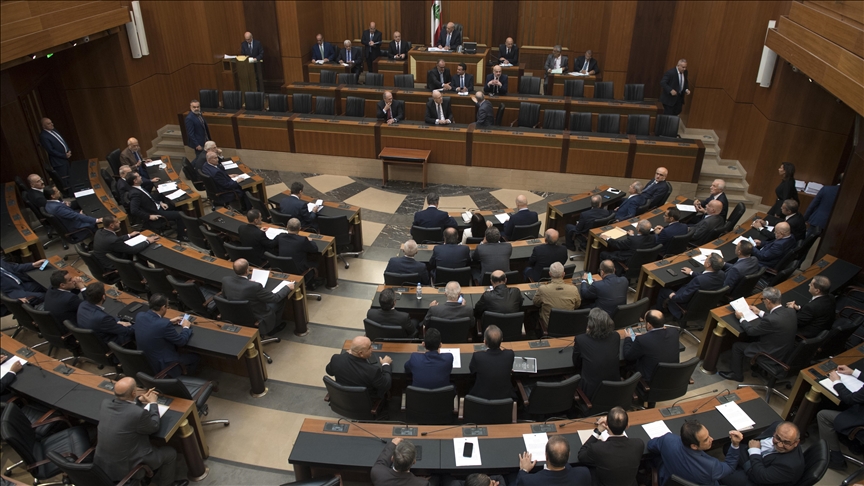(Part IV: Odd Rules in Colorado)
Have you ever attempted to go searching for a new car on the weekend, only to find that all of the dealerships are closed on your day off? It is mainly because, by regulation, it truly is really a criminal offense for a automobile dealership to be open up on Sundays in Colorado.

Colorado Revised Statute portion 44-20-302 (2020) suggests:
No individual, firm, or company, irrespective of whether operator, proprietor, agent, or personnel, shall keep open up, run, or assist in trying to keep open or functioning any position or premises or residences, irrespective of whether open up or shut, for the reason of selling, bartering, or exchanging or providing for sale, barter, or trade any motor automobile, no matter if new, applied, or secondhand, on the initial day of the week normally named Sunday.
Any individual who violates this regulation is responsible of a misdemeanor and topic to a fantastic of up to $1,000, up to six months in jail, and the probable revocation of their motor vehicle dealer’s license. C.R.S. § 44-20-303 (2020).
The mentioned reason for this kind of Sunday auto income bans is to give personnel a day off. Due to the fact motor vehicle gross sales personnel are inclined to work lengthy several hours, getting Sundays off is a way to ensure they get a break and have time to spend with their households.
(Having said that, this Sunday ban precisely does not apply to enterprises that repair service autos, or that offer motor car components, or that invest in offer or trade boats, snowmobiles, or motor automobile trailers… so, does the state legislature think all those staff members just do not perform as hard? Or that they want significantly less time with their people?)
Such Sunday bans on company have their ideological roots, not in the welfare of workers, but in America’s puritanical colonial past.
Typically referred to as “Blue Regulations,” or merely “Sunday Rules,” these limitations ended up originally meant to implement religious beliefs and prohibit certain things to do throughout intervals in which persons were being expected to show up at church products and services. This sort of legislation were commonplace in the course of the founding of the country, what with the colonies complete of pilgrims and settlers who identified the churches in Europe much too liberal for their liking.
The initial these types of “Sunday Legislation” in The united states was enacted in 1610 by the colony of Virginia, which punished failure to on a regular basis go to church 2 times on Sunday by the loss of life penalty.
By the early 1800s, the secular conveniences of city daily life, these kinds of as mail, newspapers, and barber solutions have been all beginning to encroach on the sanctity of “the Lord’s Day.”
By 1834, the 1st trains started to run on Sundays, and the clergy protested bitterly versus this new, modern-day desecration of the American Sabbath.
Point out legislatures responded.
In 1896, the United States Supreme Courtroom, in Hennington v. Ga, 163 U.S. 299 (1896), upheld the conviction of the superintendent of transportation for the Alabama Excellent Southern Railroad organization for unlawfully operating a practice on the Sabbath, in violation of an 1850 Georgia legislation – by itself, the Courtroom famous, an extension of a colonial prohibition from 1762 banning any “labor, business or work” “upon the Lord’s working day.”
A couple a long time afterwards, the Supreme Court offered a a lot more rational, fewer religious, and much more workers’-welfare-focused reasoning for not striking down these types of “Sunday Legislation.”
In Petit v. the Point out of Minnesota, 177 U.S. 164 (1900), the United States Supreme Court upheld an 1894 Minnesota statute that prohibited any particular person from keeping open a barbershop on Sunday, stating “the object generally was to shield the workforce by insuring them a day of relaxation and stated: `Courts will just take judicial see of the actuality that, in check out of the tailor made to preserve barbershops open up in the evening as nicely as in the working day, the staff in the shops do the job a lot more, and throughout later on, hrs than people engaged in most other occupations, and that this is specially real on Saturday afternoons and evenings also that, owing to the practice of so numerous adult males to postpone obtaining shaved until Sunday, if these kinds of retailers had been to be permitted to be retained open on Sunday, the staff members would ordinarily be deprived of relaxation through 50 % of that working day.'”
Fifty decades afterwards, in 1955, Colorado enacted for the initially time a regulation, C.R.S. §§ 13-20-1 et seq., that manufactured it unlawful for any individual to continue to keep open up any company that acquired, sold, or traded motor motor vehicles “on the initial day of the week, typically called Sunday.”
The penalty for violating this law was a prospective high-quality of up to $1,000 (which would be much more like $10,000 in modern dollars), up to 6 months in jail, and the potential revocation of the motor motor vehicle dealer’s license.
The Colorado Supreme Courtroom upheld this law in Mosko v. Dunbar, 309 P.2d 581 (Colo. 1957), less than the premise that, as the United States Supreme Courtroom decided in the Minnesota barbershop case, these kinds of a law was for the great of the public welfare and due to the fact (having said that seemingly contradictorily,) it actually bolstered the Very first Modification doctrine of flexibility from faith.

This new regulation on vehicle sellers barely stretched back again to the founding of the nation. Somewhat, it came about as a consequence of a resurgent wave of conservative Christian fervor throughout the 1950s.
Even with this currently being the only this kind of statute to ban company on Sunday, in its belief, the Colorado Supreme Court docket made a unique issue of noting that “It has been the policy of this commonwealth [of Colorado] since 1868 to inhibit all labor on Sunday, is effective of charity and necessity excepted.”
Describing that, “Sunday rules are ‘essentially civil and not religious” ordinances, and that the judicial branch should “help ‘the delicate voice of Christianity to protected the owing observance of Sunday as a working day of relaxation” for the reason that performing so would really uphold religious liberty – such a law does not have to have any one to worship any certain deity, after all, it merely involves the workers to just take a day off.
These types of a working day off, the Court wrote, would save those employees – if not the complete of society – from the mounting tide of divorce and juvenile delinquency.
Because a non-doing work spouse “has a organic suitable to the society and companionship of the performing spouse,” and “the young children have a natural appropriate to the modern society and companionship of the operating mum or dad,” the Courtroom discussed that this certain Sunday Law was not only superior but necessary for the welfare of modern society, as, “a person of the crucial triggers for divorce is the absence of companionship involving partner and spouse, resulting in the spouses pretty much getting whole strangers to each and every other. Mom and dad who have working and social engagements to keep to the extent that their youngsters are left to change for on their own create a issue conducive to juvenile delinquency. This court need to be the to start with to fortify the relatives from widening the wedge by which triggers for divorce or delinquency may perhaps be provided more impetus to arrive at flood stage.”
This final decision stays the legislation of the land to this day.
The first statute protecting against auto dealerships from selling vehicles on Sunday was current and replaced by the state legislature in 2018. C.R.S. § 44-20-300 et seq.
And for those good reasons, you can not purchase a car from a dealership on Sundays in Colorado.





More Stories
The Georgia runoff looks very tight – politicalbetting.com
The U.S. wants the EU to be strict with China. But Europe can’t afford it
US authorizes another missile sale to NATO hopeful — RT World News